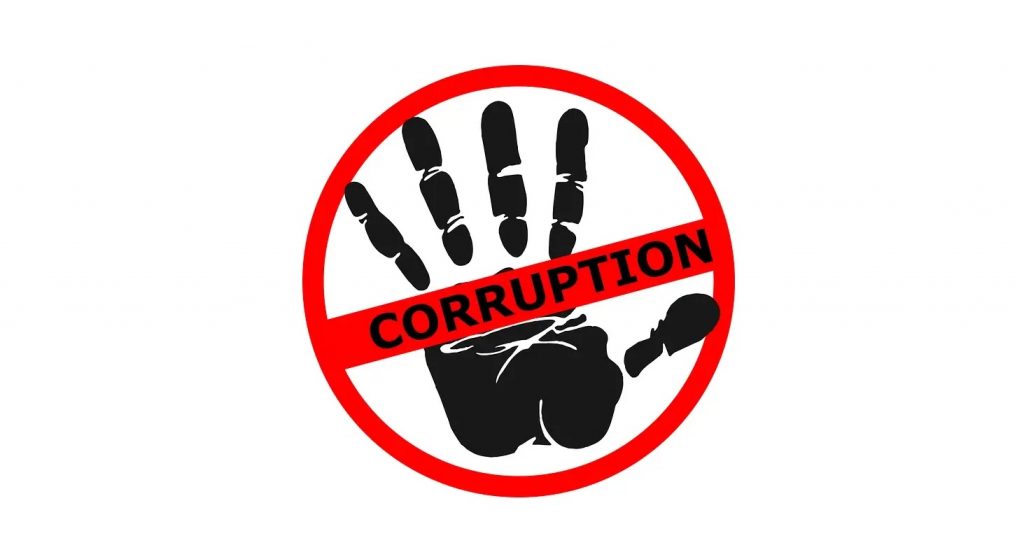Corruption has been a major setback to development in Kenya for over four decades. What is corruption? Corruption is the abuse of public power for private gain. Kenya ranks 128 out of 180 according to the 2021 Corruption Perception Index by the Transparency International. In 2015, Kenya’s president Uhuru Kenyatta declared corruption a national security threat.
Corruption and fraud
Generally, corruption inhibits a country’s development. Reports from Ethics and Anti-Corruption Commission (EACC) show that Kenya loses close to 608 billion each year due to fraud.
Corruption is an unwelcome vice all over the world. Some of the effects it causes to the country include; depletion of national wealth, corrosion of the social fabric of society, unemployment, and demoralization of creativity and innovation since the society rewards the corrupt rather than the deserving individuals.
What are possible solutions to corruption in Kenya?
Creation of openness in government spending
The government is responsible for all public expenditure and budgeting for the country. The government reads its budget to its citizens each year. It should also make public the expenditure so that there is accountability. Doing this accounts for all monies spent and the corrupt individuals will stick to transparency. Transparency is significant to reduce corruption in the country. Kenya is currently a member of the Open Government Initiative.
Ensuring equality of wealth and powers through wise voting
Citizens elect their leaders through the ballot. The gap between the majority and the minority keeps growing every day. The majority having the upper hand, ensure that they maintain their grip on power; however, wise voting provides that honest and deserving leaders are entrusted with the power to run the country. With careful and responsible leaders in high levels of governance, government operations will run smoothly.
Political will
Empowering institutions that are responsible for fighting corruption is one step in curbing corruption. The institutions engage in many activities in their bid to end corruption. For quality output of these institutions, the process requires enough personnel and finances and therefore made possible through the provision of adequate resources and adequate financing of the institutions.
Recalls of government officers
It involves taking signatures from the public to support the withdrawal of under-performing or corrupt government officers from their positions. The public has the power to elect government officials and remove them from office as well. With the required number of signatures, the government officer loses his job. Sacking officials causes fear to the other officers forcing them to work diligently and with utmost honesty.
Taking legal actions
Despite many years of trying to end corruption in our country, it remains to be a significant challenge. It is a challenge because those found engaging in fraud go unpunished. Employers and the government at large should ensure that they take officers alleged of bribery to court, and legal action is taken upon them if found guilty. When employers punish several employees and officers in this way, it will act as a deterrent.
Protests
Corruption affects the general public, who are the majority. They can help curb corruption through peaceful demonstrations, protests, and rallies. When citizens come together to fight for a common course, they do it vigorously, and the intended message is passed on effectively.
Installation of strong management systems
Government institutions and businesses should have clear procedures in managing its properties and operations. All employees should follow these procedures strictly to avoid any loophole that can be used to carry out corrupt activities. The employees should also be accountable for every action that they engage in. Doing this will help increase accountability in private and public expenditures. An example of this is the Integrated Financial Management Information System, which was adopted by the government in 1998. The system, however, needs tighter controls and implementing blockchain technology can be a solution.
Encouraging zero bribes
Every institution should ensure a zero bribe environment for its daily activities. Installation of CCTV cameras to monitor all internal operations can also help to curb corruption. Those captured engaging in illegal activities should be subjected to severe punishment. Punishment will ensure that employees are always conscious and responsible for all their activities.
Conclusion
As a country, Kenya is working to make sure that corruption comes to an end. It has set up a multi-agency framework that unites several agencies that fight corruption. The structure includes:
- The Anti-corruption Commission
- Directorate of Public Prosecution
- The Office of Attorney General
- The Financial Reporting Center
- The Kenya Revenue Authority
All the above are essential solutions in the fight against corruption; however, for Kenya to be a corruption-free country, the battle starts with you and me. Let us all begin fighting corruption at an individual level, and having a corruption-free country will be a dream-come-true to many Kenyans.



